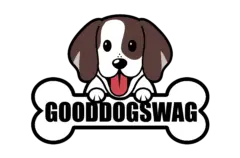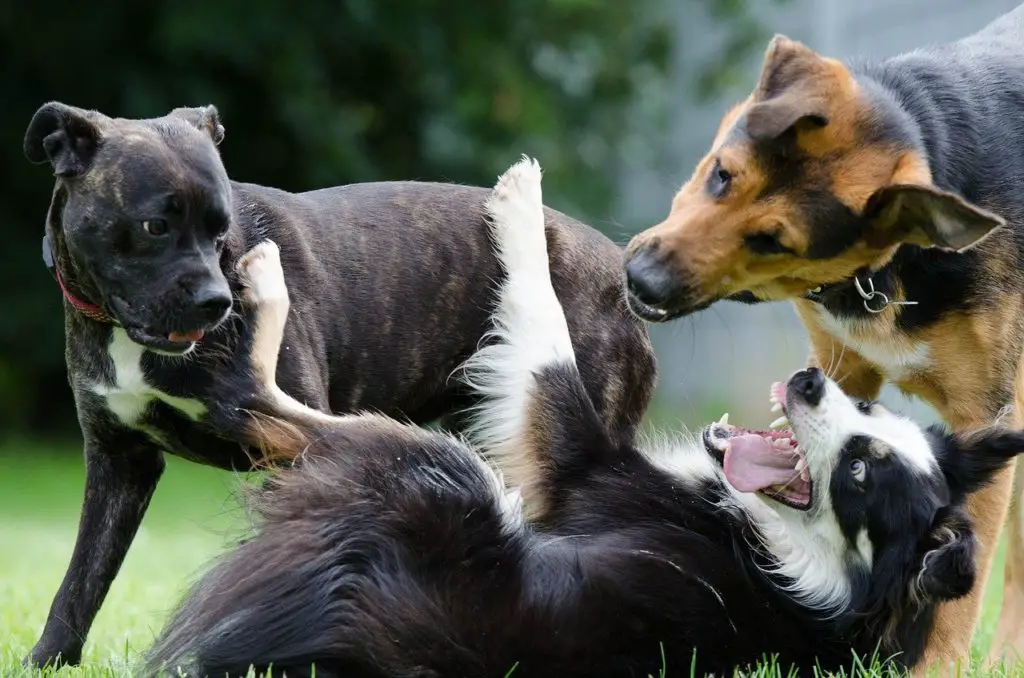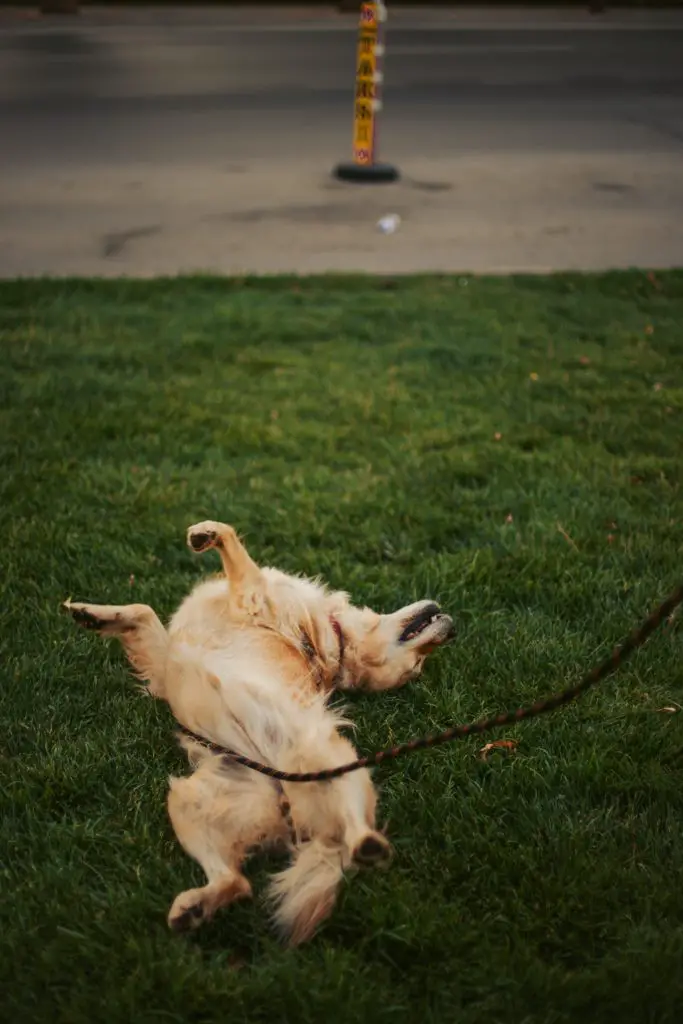Dogs have a naturally keen sense of smell. Often, they are attracted to odors that our nose finds offensive, the smell of feces is one such odor. Dog owners are perplexed by their dog’s delight to roll their shoulders, back, and especially their neck in poop!
It is likely your dog has a reason behind this action. Why do dogs roll in poop? Looking at the ancestry of dogs we can make a few educated conclusions for this behavior.
Why do Dogs Roll in Poop? – The Dog’s Nose
A dog’s nose and sense of smell differs from humans. Imagine seeing and experiencing the world through your nose first and eyes second. Dogs read much of their surroundings by the smells they pick up from their nose.
Dogs have an incredible sense of smell with 300 million olfactory receptors in their nasal cavity compared to humans that have about six million olfactory receptors. Another factor that makes a dog’s smell so acute is part of their brain is devoted to smelling.
What else makes a dog’s nose so powerful? They have what is called neophilia, which is a scientific word use for preferring new smells or things. Dogs are attracted to new and interesting odors.
The biggest difference between humans and canines is dogs have two pathways in their nose, one is for breathing and the other for smelling.
Dog’s olfactory receptors have the ability to pull out individual odors. One example is when humans smell odiferous feces, your dog smells another dog’s scent released when they defecate. Every dog leaves their scent behind when they poop which gives off information.
The incredible nose of a dog is capable of disseminating smells into different parts in order communicate and gain information. When they smell poop, they are learning what the other animal ate, their emotional state, health condition and possibly gender.
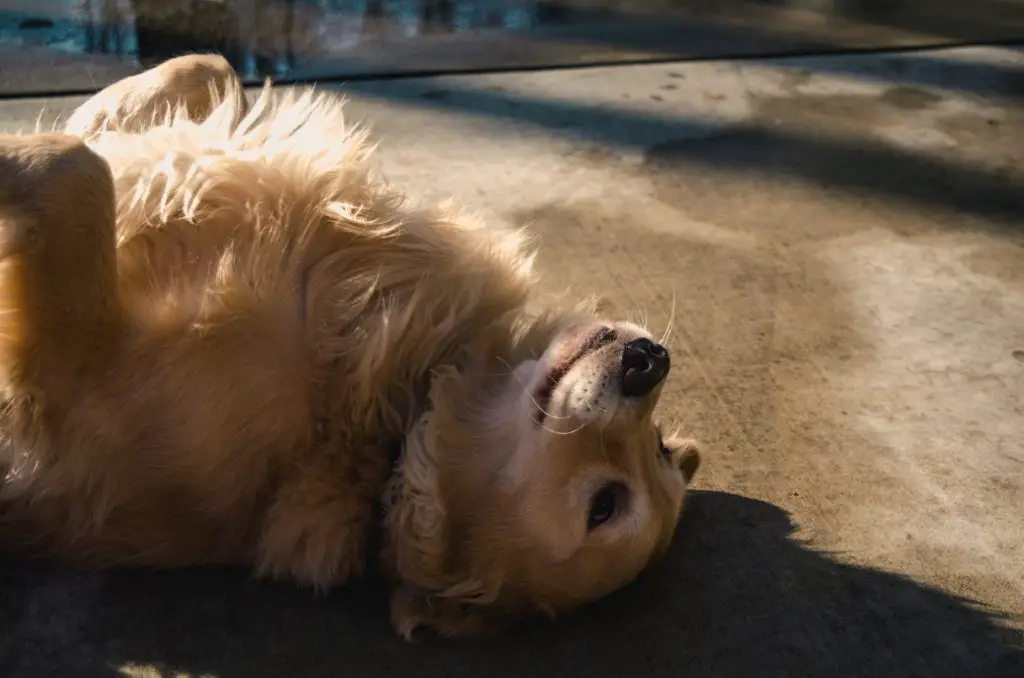
Related Articles:
- How to Stop a Dog from Pooping in the House at Night
- A Review Of The Top 5 Best Carpet Cleaner Solutions for Dog Urine
- A Review Of the Top 5 Best Artificial Grasses For Dog Potty
Why do Dogs Roll in Poop? – 4 Reasons
Your dog is likely trying to accomplish something while rolling in another animal’s poop. It could be a form of communication, natural instinct, leaving their own scent behind, or for attention.
Natural Instinct. One reason dogs roll in poop is to rub the scent found in the poop into their coat or fur. The dog’s ancestors used this rolling behavior to help conceal their own natural scent while hunting for prey.
Rolling in poop is a way to camouflage their own odor. Simply put, your dog could be trying to cover up their scent with other animal and environmental odors.
Leave Scent Behind. Your dog could be rolling in poop to leave their scent behind or “marking their territory”. Another name for this behavior is scent marking. You might have seen your dog scent mark their sleeping area, your carpet, or even their dog bed.
Dog’s scent mark while out for a walk primarily using urine and feces. Your dog leaves their scent behind to let other dogs know they have been there. Often it is letting all dogs know that this area is claimed, and they can move on.
Communicate. Male dogs in particular like to communicate by leaving scent through urine. They communicate quietly by peeing on the sidewalk, mailbox posts, grass, and even vehicle tires. Your dog could urinate and defecate in the same location on every single walk just to reinforce their scent.
It is also interesting that your dog will go sniff the location of previously marked spots to gather more information.
Attention Seeking. Although this is the less likely reason for why do dog’s roll in poop, it is still possible. Our reaction to their rolling in something we consider foul could be rewarding for them. We get excited and raise our voice when we see they are either rolling in poop or came back from the yard with stink on their coat.
It is quite possible that dog’s roll in poop just for fun. Some dogs live to eat, chew, dig a hole and even roll in poop.
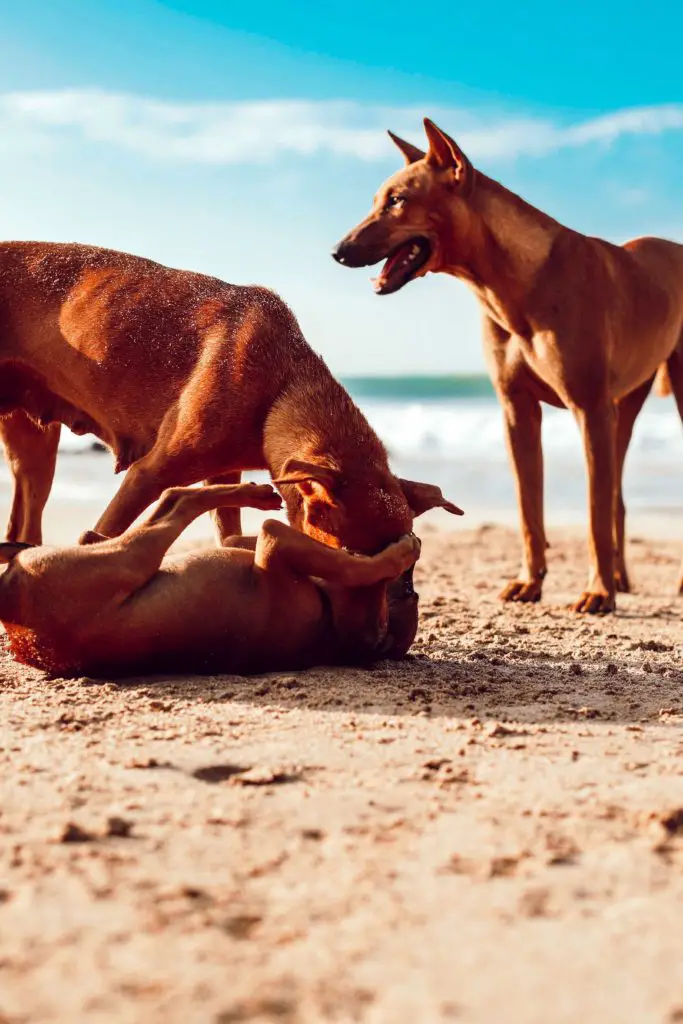
Related Articles:
Why do Dogs Roll in Poop? – Risks
Feces in general is gross and for good reason! When your dog rolls in poop, it is not just an inconvenience, there is also some risk involved. There are three main risks for rolling in poop, your dog picks up bacteria, worms, or viruses.
Bacteria. Dog poop contains millions of fecal bacteria. The three most common strains are salmonella, e.coli, and giardia. It is best to be extra cautious when bathing your dog after they roll in feces.
Worms. Poop can contain harmful worms or parasites. Not all dog owners deworm their puppies for intestinal worms, meaning each time the dog defecates it leaves behind a few worms. Even dogs that have been dewormed can easily pick up worms from the environment or eating contaminated poop.
One important exam conducted by your veterinarian is the dog’s annual fecal exams. Dogs can easily sniff up worms, found in feces or dirt while out for a daily walk. The most common worms found in poop are roundworms, whipworms, hookworms, and tapeworms.
Roundworms are the most common parasite found in poop. They look like spaghetti and may be several inches in length. It is possible to see them when your dog poops. Dogs can sniff up their eggs found in dirt or in another animal’s poop. Roundworms like to live in your dog’s intestinal tract eating partially digested food, which can make your dog very nutrient deficient.
Whipworms look like tiny pieces of thread that is enlarged at one end. Dogs become infected with whipworms by sniffing or eating whipworm eggs found in the soil or dog feces.
Hookworms are very small and often not seen in dog feces. They like to hook inside your dog’s intestines making your dog very sick. It is important to bring a fecal sample to your veterinarian to make a diagnosis. Hookworms can only be seen by using a microscope. Be extra careful as hookworms can enter through your dog’s skin and human’s skin.
Tapeworms resemble little pieces of white rice and can be seen in your dog’s poop. Dogs that are affected might scoot their bottoms on the floor or ground outside. Scooting leaves behind worms and scent.
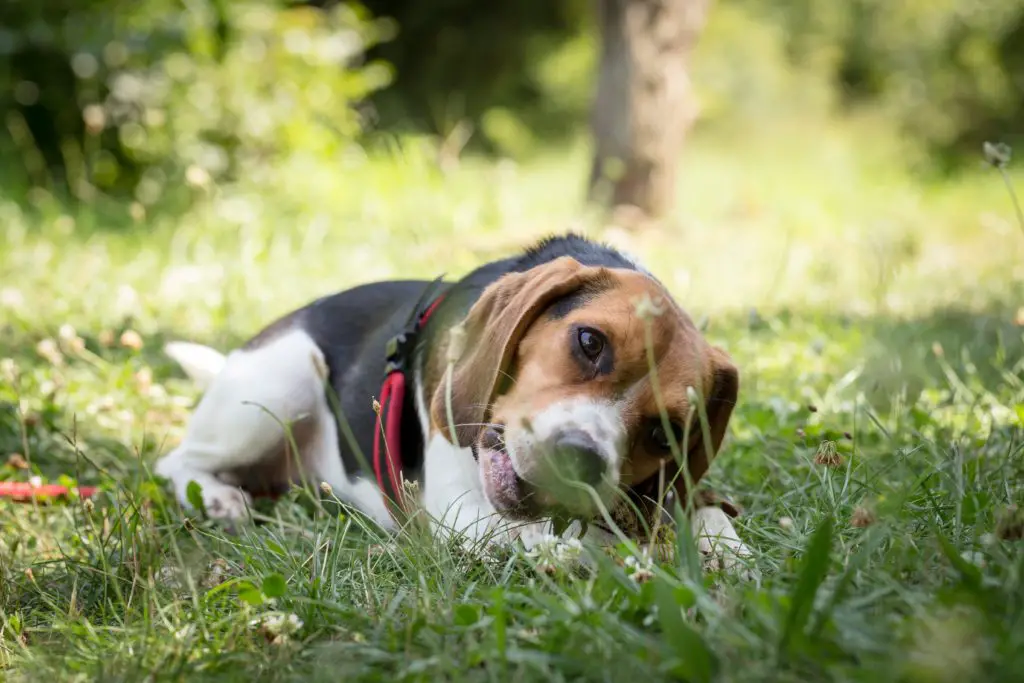
Virus. Parvovirus is the most common disease that can be transmitting through poop. It is highly contagious and deadly for young dogs and older dogs with weakened immunity. Parvovirus is spread through feces, not through blood or urine. It has to be ingested for the dog to become infected.
Why do dogs roll in poop? Even when we know the reasons, there is still health reasons for discouraging this behavior. Bacteria, worms, and viruses transmitted through coming in contact or ingesting feces is a concern for dog owners.
When it comes to cleaning up your dog, be sure to wash and rinse your dog very well. Wash their collar and thoroughly disinfect the cleaning area.
Related Articles:
- Ultimate Guide: How To Take Care Of A Puppy
- Ultimate Guide: How To Take Care Of A Dog
- Ultimate Guide: How To Take Care Of A Senior Dog
- The Benefits of Owning a Dog
- Top 12 Tips for First Time Dog Owners
Why do Dogs Roll in Poop? – Discouraging the Behavior
When possible, you want to discourage your dog from rolling in poop. Here are a few tips for stopping this behavior:
- Keep Your Yard Clean. Daily clean up your dog’s feces and dispose of properly.
- Short Leash. Teach your dog to walk beside you and/or keep them on a shorter leash.
- Leave it Command. Spend time teaching your dog the “leave it” command. When you encounter animal feces use the command, “leave it.” Your dog will quickly learn that this behavior is not desired.
- Be Observant. Neighbors that have cats and dogs often have poop near their home. Some people do not pick up after their dog, so be extra observant at busy neighborhood parks.
Vigilance and training on your part will help your dog not roll in poop.
The dog’s nose is incredible and certainly a fascinating trait of canines. The more we know about why do dogs roll in poop, the better we can understand their behaviors. One behavior that we want to discourage is rolling in poop, it is healthier for you and your dog.
Please read our Legal Disclaimer
